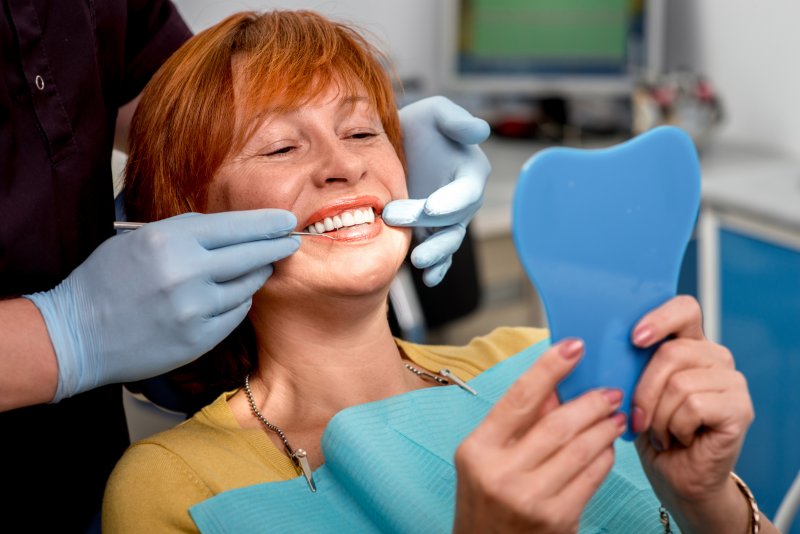
If you’re ready to say goodbye to your dentures, the good news is that the is another option out there. While dentures are a great option and can be lifechanging for patients who are missing most of or all of their teeth, they aren’t for everyone. There are still some downsides that aren’t so desirable. Fortunately, dental implants in Spring Hill can provide a variety of benefits that dentures can’t. Continue reading to learn what the benefits are as well as some tips for making the transition.
5 Benefits Dental Implants Have Over Dentures
There are a variety of different reasons that you could be wanting to make the switch to dental implants. A dentist in Spring Hill shares some of the most common:
- Easy Maintenance: You won’t need a collection of adhesives or soaking solutions to maintain your dental implants. You just need to brush, floss, rinse, and see your dentist. Just like your natural teeth!
- No Restrictions: Dentures make it difficult for you to enjoy some of your favorite foods. Dental implants restore up to 90% of your natural bite power, so you won’t need to worry about cutting out any dishes.
- Prevents Bone Less: Dental implants are currently the only tooth replacement option the maintains the integrity of the jawbone. This is because it replaces the missing root of the tooth, therefore allowing the bone to be stimulated by regular chewing.
- More Stability: If dentures aren’t fitting as they should, they can slip and slide around the mouth. This makes it more difficult to speak and eat. Implants are anchored into the jawbone, so they provide as much stability as your natural teeth do.
- Long-Lasting: Dentures need to be taken back to the dentist periodically so that you can have them relined and replaced. Implants can last upwards on 25 years and even the rest of your life with proper care.
3 Tips for Switching to Dental Implants from Dentures
It will take a little bit of time for you to adjust from dentures to implants. Here are a few tips to help:
- Allow Time to Heal: After you have your placement procedure, you will need to rest for a few days. Be sure to take some time off work so that you can take it easy.
- Eat Softer Foods: As much as you’d like to eat whatever you’d like right away, you will need to stick to softer foods while your implants heal.
- Adjust to New Oral Hygiene Routine: Remember to brush, floss, and rinse regularly. You can even find special toothbrushes made especially for people who have dental implants.
You will need a little bit of time to get used to your dental implants, but it is worth the switch. By using the tips above, you will be experiencing all of the benefits in no time!
About the Author
Dr. Keith Chapman earned his dental doctorate from UT Health at San Antonio before continuing his education at the Zimmer Institute. There, he was trained on the use of placing implants as well as intensive surgical training under an oral surgeon. To learn more about dental implants or to schedule a consultation, visit his website or call (615) 302-1414.
